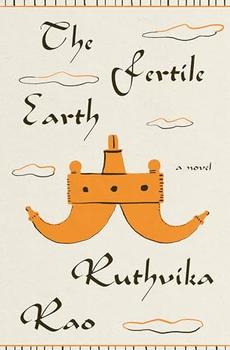Book Club Discussion Questions
Want to participate in our book club? Join BookBrowse and get free books to discuss!
Please be aware that this discussion guide will contain spoilers!
-
After reading The Fertile Earth, did you find your understanding of Indian society deepened? Do you see similarities, if any, between this society and the society of the country where you live; Whether the rules of race or caste are spoken or unspoken, how many of these are societal evils and how many are interpersonal?
-
The position of one's birth is an important theme throughout the novel. "…I wish you were never born," Saroja says to Vijaya in the aftermath of the tiger hunt. [pg. 65] How do you view Saroja saying this to her own daughter, who has the "higher" birth compared to Katya's. Is Saroja thinking of Katya as she is saying this? That somehow, if Katya were her child instead of Vijaya's, then none of this would have happened.
-
In your opinion, what would Sree have been as a teenager and an adult, if the accident hadn't taken place? How would Vijaya and Sree's relationship have been like?
-
Surendra Deshmukh and Mahendra Deshmukh are Vijaya's and Sree's Uncle and father respectively. Surendra Deshmukh is considered to have a cruel nature, and Mahendra is considered to have a kind nature. "In the charity if Mahendra Deshmukh lay the family's." [pg 311] Do you think this is really a true portrayal of their natures? Do you think the Surendra, the cruel one, would do to Katya and her mother what Mahendra did? How much of cruelty is nature, and how much is circumstance?
-
Katya is the keeper and the embodiment of the Deshmukh family's secrets. There is a vengeful side to her nature, just like there is a vengeful side to Ranga's nature. Katya and Ranga make different choices in life. Why do you think that is?
-
Do you think Krishna has a better life because he could leave Irumi? How would this 'better life' have been had he never left? Do you think he would have continued to love Vijaya?
-
Do you think Ravi and Ada might reconcile with Vijaya and Krishna? Do you think they are the kind of people who would understand or forgive Vijaya and Krishna's choices irrespective of the injury it caused them?
-
How did your impression of Ranga transform over the course of the novel? How much do you hold him responsible for the violence in the story? Is there any part of you that feels empathy or pity for Ranga, despite the cruelty of his
actions?
-
The tiger hunt that injured Sree was Vijaya's idea. How does guilt define Vijaya's life and identity, and how do you see this playing out at the end of the novel? Do you think she blamed herself?
-
Vijaya and Katya find out they are sisters. How do you imagine their relationship develops as they grow older? Despite being from the same house, they have led completely different lives, but share common traits. What do you think these are?
-
Would Vijaya have survived life without Krishna? If she had chosen to return to Ravi, what would have her life looked like?
-
In the epilogue, Krishna and Vijaya have remained together. They are raising children together. What is the significance of their yearly visits to the ruins of the Deshmukh gadi? An awful thing has happened here, but as Kanakam says, "They came to remember. They came to remember, to see the gadi with the lights turned on in every room, the stained-glass windows glowing like jewels, the way Sree would have seen it." [Pg. 368] What does it say about the nature of memory? Is it nothing but a ruin?
-
What do you think about the next generation of children in the family: Krishna and Vijaya's daughters, Katya's daughter, and Ranga's son. All these cousins growing up together. Do you think the parents will choose to them the full family history? From one generation to the next, how much of history survives in families?
Unless otherwise stated, this discussion guide is reprinted with the permission of Flatiron Books. Any page references refer to a USA edition of the book, usually the trade paperback version, and may vary in other editions.
